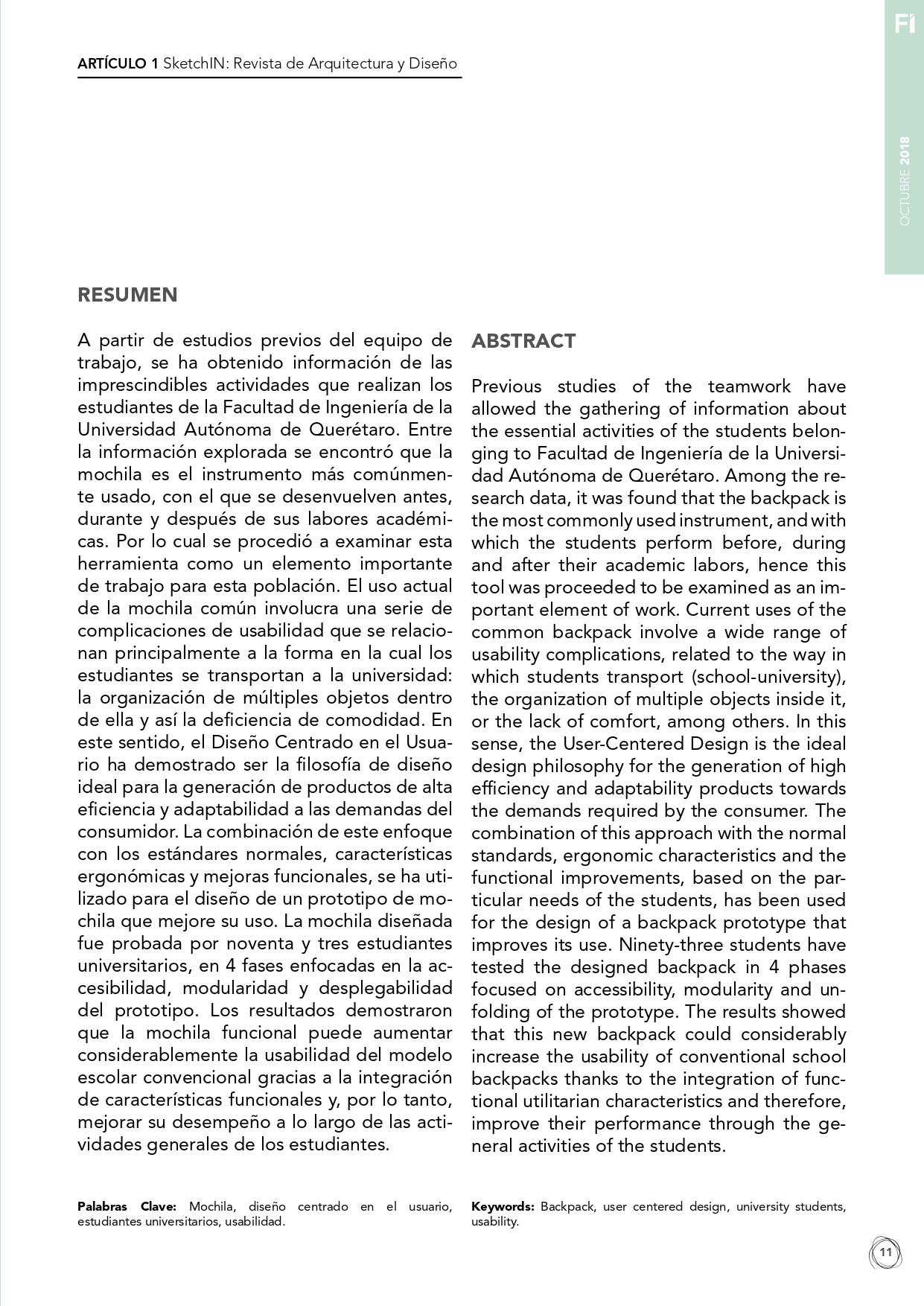Abstract
Previous studies of the teamwork have allowed the gathering of information about the essential activities of the students belonging to Facultad de Ingeniería de la Universidad Autónoma de Querétaro. Among the research data, it was found that the backpack is the most commonly used instrument, and with which the students perform before, during and after their academic labors, hence this tool was proceeded to be examined as an important element of work. Current uses of the common backpack involve a wide range of usability complications, related to the way in which students transport (school-university), the organization of multiple objects inside it, or the lack of comfort, among others. In this sense, the User-Centered Design is the ideal design philosophy for the generation of high efficiency and adaptability products towards the demands required by the consumer. The combination of this approach with the normal standards, ergonomic characteristics and the functional improvements, based on the particular needs of the students, has been used for the design of a backpack prototype that improves its use. Ninety-three students have tested the designed backpack in 4 phases focused on accessibility, modularity and unfolding of the prototype. The results showed that this new backpack could considerably increase the usability of conventional school backpacks thanks to the integration of functional utilitarian characteristics and therefore, improve their performance through the general activities of the students.

This work is licensed under a Creative Commons Attribution-NonCommercial 4.0 International License.

